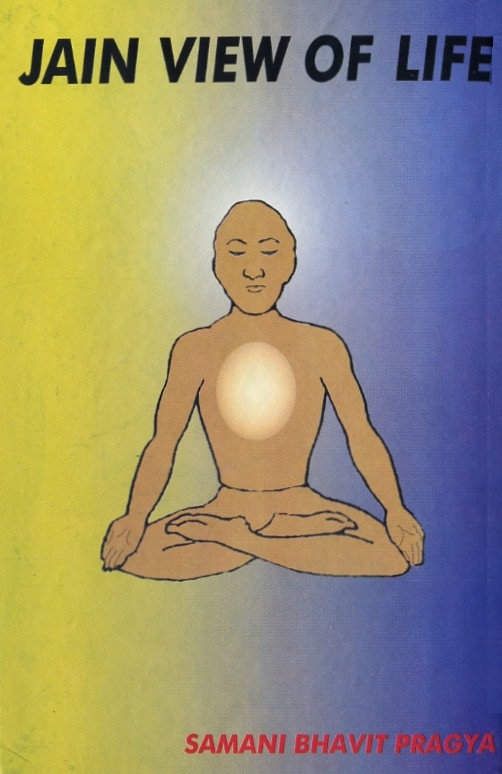Stress Causes and Antidotes
In a fifty storied building in the United States, the elevator was out of order. All the officers who had to climb to the top decided to tell one memorable incident of their life. All of them began to climb and tell their own stories one by one. A clerk who worked for these important men came up to them, breathing rapidly and began to say something. They interrupted him, and said that he would get a chance to speak after the others. Again he tried to speak, but was once more directed to remain silent. When everybody had climbed all the way to the top, they finally let him speak. Then he said to them, "There is now no use for me to speak." Again he was forced to say something. Then he said to them, "The key of the top floor is locked in the room on the ground floor."
It seems today that the "key" of character, balance, discipline and humanity is locked up or misplaced. Because of this, man is subjected to stress, imbalance, temptation, weakness and animosity.
The mind is the most mysterious component of the body. It works as an agent who receives and gives stressful information to and from the subtle world. From the cradle to the grave, man goes on filling his life with stressful material, and his inner world becomes like a huge room, full of sensations, stresses, and impressions; all of these overpower his divine nature. Then he needs to defend
himself against the unhealthy effects of stress. There are so many causes of stress, however, where there is stress, there is also an antidote. Let us understand what causes stress and what antidotes exist for those causes.
Family Causes of stress.
Every member of a family has different opinions, concepts, and interests in the family. When opinions or egos rule, stressful situations appear. Due to ego, a person does not want to listen to the advice or the suggestions of others. Advice serves to intensify anger, and vanity does not allow a person to be humble and meek. Hurting ego is the main problem of stress. Ego does not want one to hurt oneself. It keeps man bound in the narrow circle of the self, it inspires man to listen to the voice of his own self, and keeps him attached to his own desires and passions. Where there is "I", there is vanity. Vanity brings envy, jealousy, greed, discontentment, and stress.
Another cause of stress is misunderstanding between father and son, mother-in-law and daughter-in-law, brother and brother, husband and wife, and so on. The nature of stress differs from person to person in accordance with their nature.
Social Causes of Stress
The atmosphere of the whole society is responsible for stress. The youth adopt new ways of thinking while older persons follow the traditional path. The young person wants to do new things outside of the barriers of caste, creed, status, and superiority; parents or society does not permit them to do so. All of these circumstances cause stress, not only for the new generation, but for older generations as well. Because sincere or thoughtful men have regard for traditions as well as new ideas and consider the utility of a thought according to time, place, and situation, they try to keep the new generation involved in society.
Internal Causes of Stress
There is no cause of stress belonging to the family, society, or any other exterior aspect of our lives. Every man faces stressful situations, but these stresses arise because of internal reasons. The first reason is the thyroid gland which secretes less hormones, the second reason is the secretions of the adrenal gland which becomes imbalanced, and the third reason is the chemical endprphin in the brain. When endorphin is incompletely processed, mental tension arises.
Imaginary Causes of Stress
The habit pattern of the mind is to wander in the past or the future. The mind does not remain in the present moment. In fact, the past is dead and the future is not yet born. Whatever the future is, it remains beyond one's reach until it becomes the present. In fact, recollecting the past and thinking about the future is important only to the extent that such thoughts help man deal with the present. However, because of ingrained habits, the mind tries to escape from the present moment.
Once a husband and his wife were discussing about purchasing a cow. The husband said that he would milk the cow and make cream, but the wife replied that she would take the cream and give it to her mother. They began to argue furiously and attracted a crowd. Finally, after knowing the real cause of quarrelling, a practical minded neighbour came out of the crowd and said, "Your cow has eaten up all my grain, so you must make up the loss."
While listening to these words, the husband came to the point and said, "What do you mean? Until now we haven't even purchased the cow." The neighbour replied, "Foolish person, why are you quarrelling over petty things." Hearing this, both the husband and wife came to know the reality of their situation, and felt guilty.
The position of the mind is like a deer or a monkey that runs this way and that way the mind is very fond of wandering. No single pleasure can ever tie it down for long. It tires of one toy and then hankers for another. It always descends deeper into the mire of sensual pleasures, attachment, wealth, and position, and leads the imagination into becoming over active, thereby inducing stress. In addition to many things which can cause stress these days, a myriad of concerns such as jobs, children, health, relationships, and many others contribute to this mental wandering.
The Effects of Stress on Innate Mechanisms
Stress activates the innate mechanisms of our bodies, putting into action disorderly responses. The hypothalamus is a prominent part of the brain which incorporates all the functions of the body. Stress activates the brain's fight or flight mechanism, which prepares the body to respond to danger by either physical combat or by fleeing from the sources of stress. The pituitary is the master gland of the endocrine system which regulates other glands such as the pineal, thyroid, etc. Due to stress, the pituitary gland goes out of order. The brain's fight or flight mechanism, when activated, causes the release of hormones like adrenalin, and influences both the sympathetic and parasympathetic nervous systems, causing imbalance. The sympathetic nervous system activates the fight or flight mechanism. The parasympathetic nervous system activates systems of peace, rest, and balance. Due to stress it goes out of order.
Effect on Physiological Conditions
When the sympathetic nervous system becomes acti-vated, the heart begins to race, the heart pumps more blood causing increases blood pressure, heart attacks, strokes, or death. This increases blood pressure also accelerates breathing and tightens muscles. If parasympathetic nervous system acts rapidly it results in Diarrhea and wound in intestine. Due to the adrenalin secretions, saliva glands dry up which in turn slows digestion and reduces the supply of blood to the digestive system. Stress makes man vulnerable to depression, anxiety, and imbalance. It brings on aging, which in turn robs us of strength. Due to stress, man is unable to use all of the mental capacities available to him.
In order to remove stress, the mind must be controlled. Unfortunately, it is a difficult job to harness the mind, however, persistent effort and resolute will are the surest ways to keep the mind under control. It is not an easy task, and it is not accomplished in only a day or two. To remove stress from the mind, one must continue with correct practices relentlessly until the goal is achieved. As the body requires good food, the mind also requires a regular diet. If we do not feed the mind a spiritual diet, then a small amount of unfavorable conditions will disturb its surface. Consider the following practice.
Antidotes
Deep breathing, khechari mudra, observing silence, and recitals; all are means of removing stress and regulating the mind. The mind revolts against discipline of all kinds and fights back vigorously against force. However, if you keep on practicing, you can control the mind. These are some antidotes for making the mind less stressed or stress free.
Khechari Mudra
Fold the tongue and let touch the tip of the tongue backwards to the throat. Gradually, the tongue may push towards the upper palate of the mouth. The tongue and thought are very much connected. Stability of the tongue causes calming down of thoughts.
Pressing the Tongue With Slight Pressure
The second antidote is press the tongue with slight pressure. It also helps a person to quiet thoughts, reduce stress and obtain a peaceful state.
The Practice of Deep Breathing
The third antidote to reduce stress is to practice of deep breathing. Breath is strongly connected to one's mental state. As soon as any defilement or impurity arises in the mind, the breath becomes abnormal. When one starts the practice of deep breathing, stress is reduced or passes away entirely. Breathing again becomes normal. This practice should be followed for at least five minutes each time.
Try to breathe in and out in a slow, deep, and rhythmic fashion through the nostrils. The more often one practices, the more one consumes energy. Vital capacity of air is almost six liters. Breathing in short breaths, one breathes in and out one half to one liter of air with every breath. The breathing interval is also short, usually only two or three seconds per breath, so the exchange of gases is minimal. As a result, exhalation of carbondioxide and inhalation of oxygen is reduced. The lower supply or exchange of gases makes the mind weakened, stressed, and distracted. Physicians have established that the air should ideally remain in the alveoli (the small sacs in the lungs) for a period of ten to twelve seconds. If this retention time is achieved, then exchange of gases in the lungs will be strong and proper. On average, a man inhales about two seconds and then exhales for two seconds, thus taking four seconds per breath. At this rate, he takes about fifteen breaths per minute. By gradual practice, the rate of breathing will come down to perhaps ten or as little as four breaths per minute. In this state, a person is not afflicted by stress, distraction, or fickleness.
The more often you practice, the more quickly your mind becomes stress free whenever a distracting thought disturbs it. In order to fight disturbing thoughts, try to practice deep breathing for ten or fifteen minutes twice a day. The stress will fly away. After some months, your mind will automatically become desensitized and balanced all day long.
All of these exercises economize on mental energy. They calm and control the mind and therefore reduce stress. Rhythmic vibrations soothe the mind. This practice restores vitality of the mind, and compensates for the losses caused by aimless and useless brooding. This in turn reduces stress throughout a person's life.
 Samani Bhavit Pragya
Samani Bhavit Pragya
